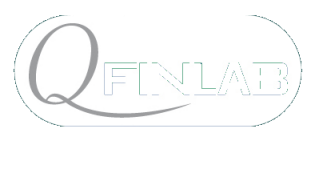L’attività seminariale del gruppo Ingegneria finanziaria si articola su diverse forme di incontro che possono avere obiettivi diversi:
- sviluppare la diffusione della ricerca su tematiche di finanza quantitativa
- diffondere studi/risultati di tipo quantitativo all’interno della comunità finanziaria
- fornire agli studenti occasioni di incontro anche di natura non tecnica su tematiche attinenti il mondo della finanza.
Le attività comprendono seminari scientifici, workshop e incontri su temi specifici, corsi di formazione.
List
I seminari confluiscono nelle liste di seminari dipartimentali.
I seminari su tematiche Fintech confluiscono anche nelle iniziative della Fintech Research Network.
Workshops
-
Feb 08 2023

 Energy Finance Italia 8 (EFI)
Energy Finance Italia 8 (EFI)
A conference in Energy-Finance & Climate-Change in memory of Peter Laurence
February 8-10, 2023 - Politecnico di Milano
The Conference puts together researchers and practitioners working in all areas of Energy-Finance & Climate-Change related research in economics, finance, engineering, data science and mathematics. Participants are encouraged to submit their papers or proposals of organized sessions on a wide range of theoretical and applied topics in these two research fields, such as (but not limited to):
Energy and climate data science, Energy forecasting, Energy innovations, Energy markets, Energy analytics, Energy mix and carbon emission trading, Energy supply chain, ESG, Green finance & financing energy infrastructure, Climate policy and risk, Climate change & market efficiency, Climate change & pricing uncertainty, Regulation and regulatory risk, Renewable sources, Risk measurement and management, Storage devices, Sustainable finance
Keynote speakers:
- Clémence Alasseur, Fime & EDF, Paris
- Fred Espen Benth, University of Oslo
- Florian Ziel, University of Duisburg-Essen
Junior participants and practitioners of the energy industry are encouraged to present their research.
Best EFI8 Paper reserved to the presenters born after January 1st, 1993
Special issue: Applied Stochastic Models in Business and Industry (ASMBI).
Deadline
for submitting an extended abstract/paper:
Friday, Nov 25th, 22.
for proposals of organized sessions:
Monday, Nov 21st, 22.
Organizing committee: R. Baviera (chair), C. Sgarra (co-chair), M. Azzone, P. Manzoni, T. Vargiolu.
For information: energyfinanceitalia.it/ Secreteriat: efi8-dmat@polimi.it Hashtag: #efi8polimi
-
Jun 14 2021

 Summer School – From Networks to Neural Networks in Finance
Summer School – From Networks to Neural Networks in Finance
From Networks to Neural Networks in Finance
Lake Como School of Advanced Studies - 14-18 June 2021
The School aims to present the state of the art on methodologies and applications of Neural Networks and Nets to finance. The expected audience of the school is provided by PhD student and young researchers interested in applications of Neural Networks and Nets to finance.
Program
The school is organized through three different initiatives:
- Four minicourses
- Lectures
- Workshops with students and participants to the school on developing research ideas.
Minicourses:
- Albert Diaz Guilera, Universitat de Barcelona (12 hours):
- Tomaso Aste UCL, London (6 hours): Information filtering networks for socio-economic systems
- Matteo Matteucci, Politecnico di Mialno (12 hours): Introduction to neural networks: from theory to practice
- Josef Teichmann, ETH Zurich (6 hours) (TBC)
Lectures:
- Christoffer Kok, European Central Bank, Contagion modelling at the ECB: analytical frameworks and policy usage
- Paolo Giudici, Università di Pavia, Network based credit risk models for peer to peer lending.
- Andrea Prampolini, Intesa Sanpaolo, Limit order book simulation with interactive agents
Detailed program: https://nnnf.lakecomoschool.org/program/
Speakers: https://nnnf.lakecomoschool.org/speakers/
Application: https://nnnf.lakecomoschool.org/application/
School Director:
Emilio Barucci
Dipartimento di Matematica
Politecnico di Milano
emilio.barucci@polimi.it
Scientific Committe:
Emilio Barucci, Roberto Baviera, Daniele Marazzina.
Organizing Committee:
Michele Azzone, Emilio Barucci, Roberto Baviera, Matteo Brachetta, Giancarlo Giuffra, Francesca Grassetti, Daniele Marazzina.
Website: https://nnnf.lakecomoschool.org/
-
Jun 10 2021

 Conference Big Data and Machine Learning in Finance
Conference Big Data and Machine Learning in Finance
www.mate.polimi.it/fintech
June 10-11, 2021 - Online Conference
Big Data and Machine Learning are driving a significant transformation in the financial industry. Amazing examples include: robo-advisory; predicting frauds in payment systems; development of sophisticated algorithmic trading strategies; systemic risk assessment; rating of companies/financial products using a huge amount of information; development of chatbots for customers; nowcasting of financial time series; digital marketing; instant pricing of insurance products.
The transformation concerns the academia and the financial industry. The goal of the conference is to bring together academicians with different backgrounds (economists, finance experts, data scientists, econometricians) and representatives of the financial industry (banks, asset management, insurance companies) working in this field.
Papers on all areas dealing with Machine Learning and Big Data in finance (including Natural Language Processing and Artificial Intelligence techniques) are welcomed. The conference targets papers with different angles (methodological and applications to finance).
Invited speakers:
- Tomaso Aste (University College London)
- Emanuele Borgonovo (Università Bocconi)
- Tucker Balch (JP Morgan AI research)
- Juri Marcucci (Bank of Italy)
- Georgios Sermpinis (Adam Smith Business School, University of Glasgow)
For information: www.mate.polimi.it/fintech
-
Mar 22 2021

 Polimi Fintech Series – Valerio Potì – March 22, 2021
The Polimi Fintech Series, under the fintech-ho2020.eu and the Cost Fin-AI.eu project, presents
Polimi Fintech Series – Valerio Potì – March 22, 2021
The Polimi Fintech Series, under the fintech-ho2020.eu and the Cost Fin-AI.eu project, presents
March 22nd, 2021 - 17.30 (CET)
Virtual room: Click here to access the Zoom Virtual Room, or insert the Meeting id on your Zoom app: 885 3010 212
Valerio Potì (University College Dublin)
COVID Narrative Risk: A Computational Linguistic Approach to the Econometric Identification of Narrative Risk During the COVID-19 Pandemic
Abstract
In this paper, we study the role in financial markets of narratives related to the ongoing COVID-19 pandemic. The pandemic represents a natural setting for the development of narratives that may effects or be affected by financial markets. We thus treat the pandemic as a natural experiment on the relation between prevailing narratives and financial markets. We adopt the SIR model and natural language processing on financial newspaper news and Twitter tweets that deal at the same time with financial market topics and COVID-19 to study the dynamics and determinants of coronavirus narrative epidemics. Our aim is to establish whether there an ``infodemic'' develops, and whether the prevailing narrative, whether resemnbling an infodemic or otherwise, drives or is driven by financial markets developments, controlling for developments regarding the COVID-19 pandemic. We find associations between narratives about the epidemic, stock market dynamics (both regarding returns and volatility) and government responses to COVID-19. We also find that the narrative spread does resemble an infodemic, since it is well described by the SIR epidemic model. Our estimates of the shape of the narrative infodemic curves in different countries depend on whether the COVID-19 outbreak occurred early and on its severity. Negative tones and tones communicating uncertainty are prevalent in the growing stage of the infodemic. We find preliminary evidence of a causality relation between the negative and uncertainty tones of coronavirus tweets and both market return and volatility change.
Stay updated with latest news on QFinLab seminars subscribing here: https://bit.ly/2TNtC6e
-
Feb 22 2021

 Polimi Fintech Series – Charalampos Stasinakis – February 22, 2021
The Polimi Fintech Series, under the fintech-ho2020.eu and the Cost Fin-AI.eu project, presents
Polimi Fintech Series – Charalampos Stasinakis – February 22, 2021
The Polimi Fintech Series, under the fintech-ho2020.eu and the Cost Fin-AI.eu project, presents
February 22nd, 2021 - 17.30 (CET)
Virtual room: Click here to access the Zoom Virtual Room, or insert the Meeting id on your Zoom app: 827 9926 5984
Charalampos Stasinakis - University of Glasgow
(with G. Sermpinis)
Big Data, Artificial Intelligence and Machine Learning: A Transformative Symbiosis in Favour of Financial Technology
Abstract
The financial technology revolution is a reality, as the financial world is gradually transforming into a digital domain of high-volume information and high-speed data transformation and processing. The more this transformation takes place, the more consumer and investor behaviour shifts towards a pro-technology attitude of financial services offered by market participants, financial institutions and financial technology companies. This new norm is confirming that information technology is driving innovation for financial technology. In this framework, the value of big data, artificial intelligence and machine learning techniques becomes apparent. The aim of this chapter is multi-fold. Firstly, a multidimensional descriptive analysis is shown to familiarise the reader with the extent of penetration of the above in the financial technology road-map. A short non-technical overview of the methods is then presented. Next, the impact of data analytics and relevant techniques on the evolution of financial technology is explained and discussed along with their applications’ landscape. The chapter also presents a glimpse of the shifting paradigm these techniques bring forward for several fintech related professions, while artificial intelligence and machine learning techniques are tied with the future challenges of AI ethics, regulation technology and the smart data utilisation.
Stay updated with latest news on QFinLab seminars subscribing here: https://bit.ly/2TNtC6e

